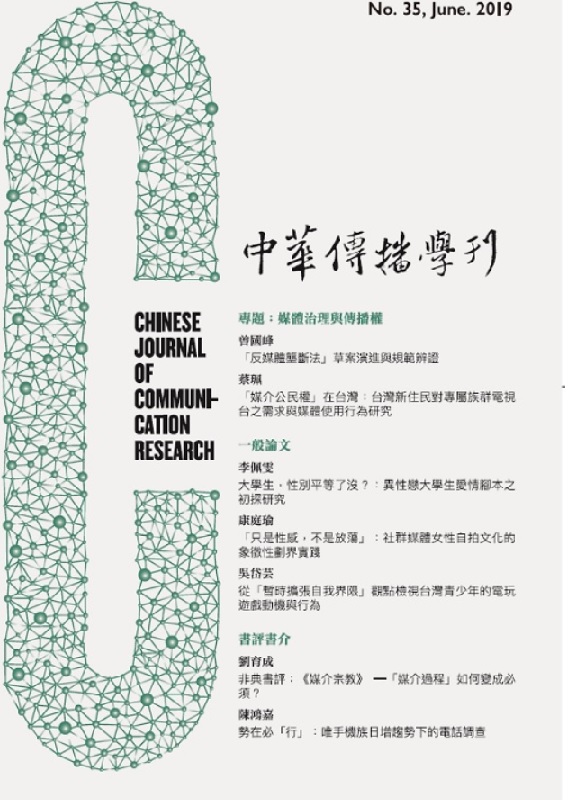 閱覽人數: 3196
閱覽人數: 3196
June
2019
No. 35
媒體治理與傳播權
Media Governance and Communication Rights頁數:43 - 86
作者(中)
蔡珮
作者(英)
Pei Tsai
關鍵詞(中)
台灣新住民、移民媒體、族群電視台、媒介公民權、傳播權
關鍵詞(英)
new immigrants in Taiwan, immigrant media, ethnic television, media citizenship, communication rights
中文摘要
本文探究新住民「媒介公民權」在台灣的實踐,面訪400位台灣新住民,發現超過七成新住民認為台灣需要成立新移民專屬電視台;傳播管道應採電視與網路雙軌並進;播出語言和字幕需求,以「母語發音搭配中文字幕」居冠。在台灣實踐新移民之媒介公民權,應採文化混雜性的多元文化主義,以彌補偏向本質主義與忽視階級差異的多元文化主義之缺失,並以多元公眾模式完善媒介公民權,讓在台灣的所有族群,人人皆享有平等近用全國性族群廣電媒體之權利。
英文摘要
The study explored the practice of media citizenship among new immigrants in Taiwan. Based on face-to-face interviews with 400 new immigrants, this study found that more than 70% of new immigrants think Taiwan should establish a specialized television station for new immigrants and migrant workers. The channel should be accessible via both TV and the Internet. The preferred language and subtitles combination for the programs is the immigrants’ mother tongue language with Chinese subtitles.
The practice of media citizenship among new immigrants and migrant workers in Taiwan must employ a cultural hybridity approach to compensate for the problems of essentialism and unawareness of class differences that can occur from multiculturalism. Media citizenship can also be improved using a model of multiple publics. Every ethnic group in Taiwan should be entitled to equal access to public broadcasting services in their own language.
The practice of media citizenship among new immigrants and migrant workers in Taiwan must employ a cultural hybridity approach to compensate for the problems of essentialism and unawareness of class differences that can occur from multiculturalism. Media citizenship can also be improved using a model of multiple publics. Every ethnic group in Taiwan should be entitled to equal access to public broadcasting services in their own language.